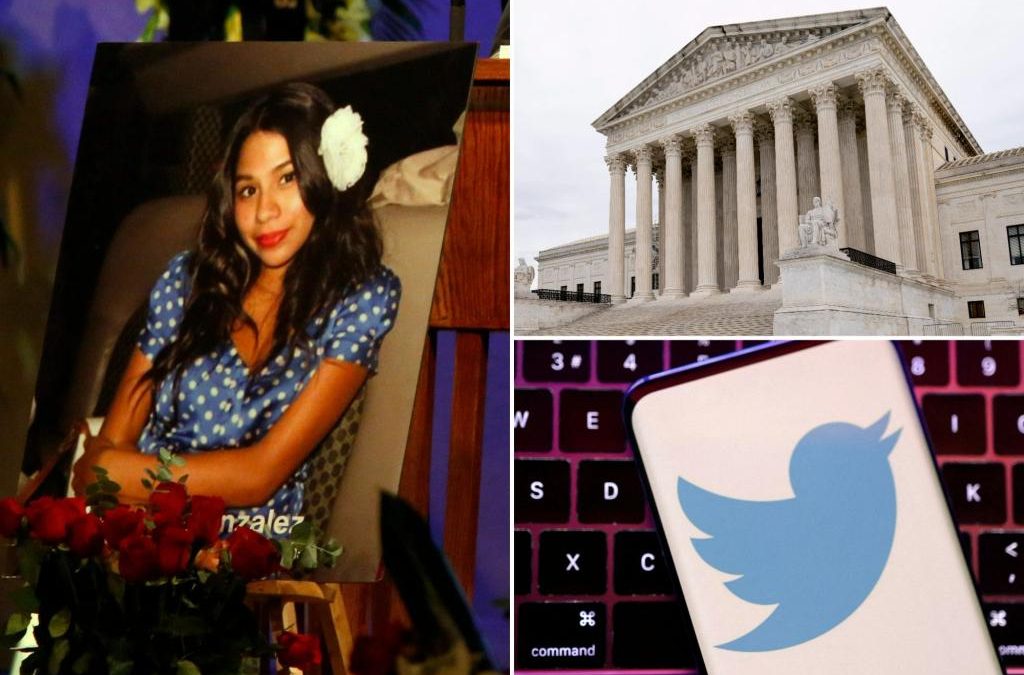The Supreme Court opted to leave the federal liability shield known as Section 230 in a pair of closely-scrutinized decisions on Thursday, handing a notable victory to Big Tech firms that rely on the controversial clause as protection from lawsuits related to content posted by their users.
The justices unanimously voted 9-0 to nix the case “Twitter v. Taamneh,” which sought to hold Twitter, Google and Facebook liable to failing to remove Islamic State content ahead of a 2017 nightclub shooting in Istanbul that 39 people dead.
The plaintiffs argued the tech firms were responsible under an anti-terrorism law and had effectively aided and abetted ISIS by allowing the terrorist group to post on its platform and failing to remove its videos.
Justice Clarence Thomas, who wrote the court’s opinion, said the “plaintiffs’ claims fall far short of plausibly alleging that defendants aided and abetted the Reina attack.”
The justices also declined to make a ruling on a case targeting Google-owned YouTube that was filed by the family of Nohemi Gonzalez, a 23-year-old college student who was killed in a 2015 Islamic State terrorist attack in Paris. The Supreme Court had initially taken up the case to to review whether the protections offered by Section 230 were too broad.
“We therefore decline to address the application of Section 230 to a complaint that appears to state little, if any, plausible claim for relief,” the Supreme Court said in an unsigned opinion on the latter case.

The court said it would “remand the case for the Ninth Circuit to consider plaintiffs’ complaint in light of our decision in Twitter.”
Gonzalez was one of 130 people killed in a series of attacks at the time. The family had argued that Google should be held liable because it failed to remove ISIS recruitment videos from its platform ahead of the attack.
The cases were considered one of the most significant challenges to date of Section 230, which refers to a section of the Communications Decency Act of 1996. For now, the wide-ranging protections offered to Big Tech firms will remain intact.

The Supreme Court’s decisions could be a temporary reprieve for Big Tech, which is likely to face more challenges to Section 230 in future cases as well as bipartisan pressure from lawmakers seeking to rein in the liability shield.
Republican critics have argued the liability shield is too expansive and deferential to Big Tech firms that have allegedly censored conservative voices, while Democratic detractors say Section 230 allows the companies to effectively turn a blind eye to hate speech.
Meanwhile, tech companies and other proponents argue Section 230 is essential to facilitate free speech on the internet.

“The Court will eventually have to answer some important questions that it avoided in today’s opinions,” Anna Diakun, staff attorney at the Knight First Amendment Institute at Columbia University, told the Associated Press.
“Questions about the scope of platforms’ immunity under Section 230 are consequential and will certainly come up soon in other cases,” Diakun added.
Google General Counsel Halimah DeLaine Prado welcomed the courts’ decision in a statement.
“Countless companies, scholars, content creators and civil society organizations who joined with us in this case will be reassured by this result,” said Prado.

“We’ll continue our work to safeguard free expression online, combat harmful content and support businesses and creators who benefit from the internet,” Prado added.
With Post wires
Source




